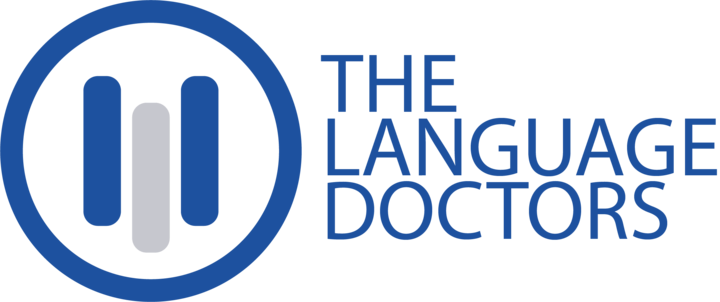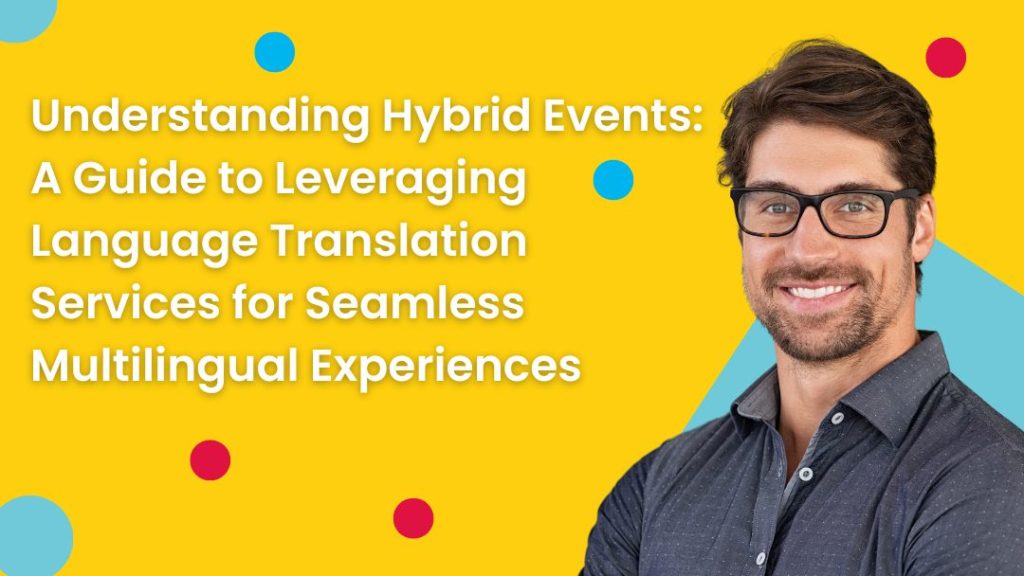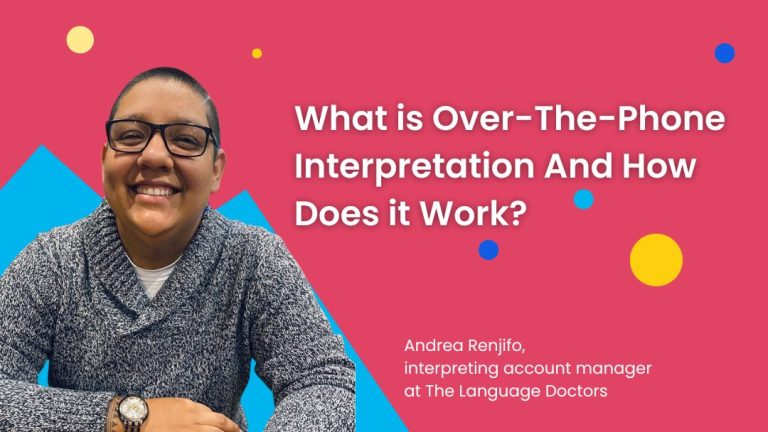What Is a Hybrid Event?
Due to the COVID-19 pandemic, people have had to leap in their knowledge and skills in terms of technology. Despite all the difficulties, international companies and organizations were able to find solutions in the form of multilingual virtual meetings that allowed them to continue their fruitful work while staying in touch with their colleagues and partners.
After the peak of the pandemic, the world began to reopen. Meetings and events began to take place live again but using improved technologies. After 2020, hybrid events that combine reality and virtuality have become popular.
What is a hybrid event? This is a meeting, conference, workshop, etc., which combines a live and a virtual audience with the help of virtual conference platforms. Hybrid events became a flexible and inclusive way to connect with worldwide audiences for businesses that wanted to continue connecting with large international audiences in person and virtually.
During a hybrid event, speakers present simultaneously to live and remote audiences via webinars, chat, or virtual reality platforms. This allows participants to choose whether to attend the event in person or stay home.
One of the most common challenges for organizers of hybrid events is to ensure effective communication in different languages, considering the cultural aspects of the participants. That is why professional interpretation and translation services play an important role in eliminating all communication barriers, allowing everyone, present or virtually, to understand the speaker’s speech and be involved fully.
In this article, together with TLD, we will analyze all the important aspects of hybrid events and offer multilingual solutions for communicating with an international audience.

Difference Between Physical, Virtual and Hybrid Events
Each company or organization chooses the most appropriate type of event to communicate with its audience. There are currently three main types of events: physical, virtual, and hybrid. Each has advantages and disadvantages and offers a unique experience that organizers use to achieve different goals.
Various events organized for international audiences require responsible interpretation and translation to ensure quality communication and information delivery without language and cultural barriers.
Let’s look at each type in more detail and explore their effective interpretation and translation capabilities.
Physical Event
Physical events are meetings, conferences, etc., in such physical spaces as halls, conference rooms, and other places that can accommodate a certain number of people. Such events are an excellent opportunity for live communication and networking. Physical events have advantages over other events, such as personalized attention and personal interaction. Still, this type of event can be challenging in terms of finding a suitable location for everyone and travel and accommodation costs if the event occurs in another city or country.
Organizers hire professional interpreters to eliminate language barriers during international physical events, which convey the speaker’s message clearly to the target audience. Translated printed materials and presentations are often provided as well. This approach ensures that all participants fully immerse themselves in the content and discussions, regardless of language level.
Virtual Event
Virtual events are held in cyberspace using video conferencing and chat platforms. It is an affordable option that does not require large expenses and offers flexibility in time and location.
Compared to physical events, virtual events allow you to save on travel and accommodation costs while providing the opportunity to connect with colleagues and partners from different countries quickly and conveniently. This type of event does not require a lot of preparation, but it is important to have a good internet connection to avoid delays or lags.
A quality and trusted interpretation and translation service is still important during multilingual virtual meetings. Some video conferencing platforms already include simultaneous translation features, but cultural considerations are absent. Professional agencies are hired to provide certified interpretation services for clear communication, which will consider all language and cultural differences in real-time, avoiding misunderstandings and confusion.
Hybrid Event
As we already mentioned, hybrid events use a combination of in-person and digital elements tailored to each audience for optimal experiences. Recently, they have become increasingly popular due to their interesting and effective way of disseminating information and communicating with various audiences.
Hybrid events combine the best qualities of physical and virtual types. They provide live communication while reaching global reach through virtual platforms, making them an ideal option for maximizing participation and inclusion.
The need for professional interpretation and translation services does not disappear during a multilingual hybrid meeting. On the contrary, it is quite acute because it requires innovative solutions and advanced technologies. In a hybrid event, planner organizers often consider remote simultaneous interpretation, which allows for real-time interpretation for both participants in reality and cyberspace.
All three types of events have their purpose and are used by companies to achieve different goals. Hybrid meetings, supported by high-quality interpretation services, in turn, allow businesses to reach a large number of people while ensuring live communication and emotions.
If you are planning a hybrid event and want to avoid language and cultural barriers, consider the On-Demand Interpreting Platform Connected Care by The Language Doctors. This communication hub lets you quickly find an interpreter for your events. Connected Care provides highly skilled professionals for hybrid events that accurately convey the speaker’s message to your audience. Organizers will have access to technical support to help integrate the platform’s interpretation services into the organization of hybrid events. Try Connected Care’s On-Demand Interpreting services today and ensure an enjoyable and professional experience for every participant!
Why Are Hybrid Events Important?
Combining the best features of physical and virtual meetings, hybrid events have become an innovative component of modern event strategies.
The idea of hybrid events is not new. Have you ever watched the Oscars? Or maybe you were rooting for your favorite football team while watching a live game? These are also hybrid events because they unite people into a large community through live interactions and virtually meeting people.
Once hybrid events began to be used for business meetings or conferences, they acquired even more important qualities and functions that organizers use to achieve company goals.
- Increased engagement. With the ability to engage many people from around the globe at once, hybrid events support both face-to-face interaction and virtual discussions and real-time polling, which keeps people engaged by participating in the way that suits them best. This ensures the active participation of those present, exchanging knowledge and experience, and the generation of new ideas and solutions.
- Opportunities for innovation. Hybrid events use new technologies, encouraging experimentation and improving existing communication methods. The ability to innovate when hosting a hybrid event will allow you to create new and unique experiences for your audience that will help you gain a competitive advantage and set you apart from other companies.
- Adaptation to changing circumstances. In unpredictable circumstances, hybrid events will allow you to remain flexible and prepared for unforeseen circumstances that often arise when hosting international events. Therefore, weather conditions, logistics problems, or other challenges will not stand in your way because you can switch between real and virtual spaces, ensuring stability.

What Are the Benefits of Hybrid Events?
Having an important role for businesses in their event strategies, hybrid events have certain benefits:
- Expanded reach. Multilingual hybrid events allow you to erase geographical boundaries and attract audiences worldwide. This approach increases engagement and creates a positive brand reputation among international audiences.
- Flexibility. Depending on their schedule or location, hybrid event participants can choose how they want to attend. Flexibility allows us to increase the accessibility of such events so that everyone has the opportunity to join.
- Economic efficiency. Hybrid events are often cheaper than physical ones. Organizers can save on some costs while maintaining all aspects and features to create positive emotions and impressions.
- Advanced analytics. Technologies used in hybrid events often provide analytics and statistics. With them, organizers can conduct surveys and collect feedback to evaluate the event’s success and make improvements based on analytics.
Multi-Language Solutions for Hybrid Event Platforms
As mentioned, hybrid events targeting an international audience cannot do without professional interpretation services and multilingual solutions. All this is necessary to ensure a positive experience and easy communication between all event participants.
Multilingual solutions for hybrid events include modern technology to adapt to the linguistic diversity of those quickly and efficiently in attendance. One such solution could be the introduction of automatic translation, thanks to which participants can receive a translation in their language in just a couple of clicks. Unfortunately, such machines are too robotic and do not consider the cultural characteristics of your audience.
Another solution is real-time remote simultaneous interpretation (RSI), which provides instant interpretation in multiple languages by professional interpreters. This approach will allow you to consider the peculiarities of the cultures and languages of your participants, as well as the emotional mood of the speaker. This will avoid misunderstandings due to incorrect translations and contribute to a sense of inclusion and involvement of participants throughout the event.
Are you already in the process of organizing a hybrid event and looking for an interpreter who is familiar with your industry and the culture of your audience? The Connected Care platform is here to help you! Despite all the technical challenges of hosting a hybrid event, these On-Demand Interpreting services will help you quickly find a certified interpreter for your needs. The Connected Care team uses enhanced technological solutions and considers all cultural aspects of your audience to ensure a positive and unforgettable experience.
Conclusion
Hybrid events combine the best features of real and virtual events. By combining personal interactions and technological solutions to improve communication in cyberspace, multilingual hybrid events allow you to unite audiences from different parts of the world and increase engagement. High-quality interpretation services play an important role in accurately conveying information at such events. Translation and interpretation should be done by professionals who understand aspects of your participants’ cultures and your industry to convey the speaker’s message accurately. Considering all these aspects, the level of organizing business events will reach a new level, which will create a good reputation and competitive advantage.




